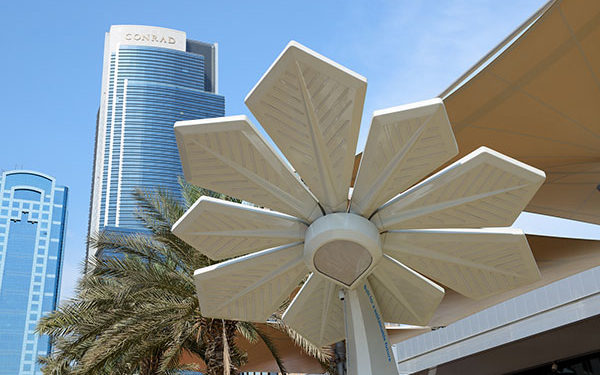Dubai has been ranked 45th among the smartest cities worldwide, topping Paris, Chicago, and Brussels, according to a study published by Swiss-based Institute for Management Development, which ranks 102 cities worldwide.
Abu Dhabi leads the region the second smartest cities in the first edition of the IMD Smart City Index 2019 (SCI) and 56th globally, topping Tokyo and Osaka, both of which are considered leading global interconnected cities, according to the new and uniquely “citizen-focused” ranking of global urban areas.
Being a globally-recognized ‘smart’ city is now critical for attracting investment and talent, creating a potential ‘virtuous cycle’ in favor of an advanced group of cities such as Singapore, Zurich, and Oslo.
This new index is presented by IMD World Competitiveness Center’s Smart City Observatory, in partnership with Singapore University of Technology and Design (SUTD). IMD’s SCI is the only global index of its kind, the SCI uniquely focuses on how citizens perceive the scope and impact of efforts to make their cities ‘smart’, balancing “economic and technological aspects ”with “humane dimensions”.
The Top 10 smartest cities in 2019 are Singapore (1st), Zurich (2nd), Oslo (3rd), Geneva (4th), Copenhagen (5th), Auckland (6th), Taipei (7th), Helsinki (8th), Bilbao (9th) and Dusseldorf (10th).
Professor Arturo Bris, director of the IMD World Competitiveness Center said: “Abu Dhabi and Dubai are two cities that stand out in the whole Mena region in terms of quality of technology and provision of social services to improve quality of life. In the future, the focus of the two cities on city planning and design will continue to be a role model.”
“Smart cities are becoming magnets for investment, talent, and trade. Yet, a significant part of the efforts and energy spent seem to be disconnected from the long-term aspirations of citizens. Without the citizen’s support and engagement, smart cities may not be sustainable. The SCI intends to fill a gap by being a reference and tool for action to build inclusive and dynamic cities,” stated Bruno Lanvin, president of the IMD’s Smart City Observatory at the IMD World Competitiveness Center.
There is no ‘one size fits all’ strategy to becoming a smart city: although all three leading cities score highly for ‘structures’ (how services are made available to citizens) while their scores vary for ‘technologies’, which assesses real impact on citizens’ daily lives. Singapore, for example, performs well in safety, monitoring of air quality and traffic congestion, while Zurich is strong for public transportation and access to medical and cultural services. Oslo’s citizens hail the quality of ‘circular economy’ solutions, on-line voting, and bicycle-centric mobility.
The economic performance of smart cities is deeply influenced by their context. For example, large urban centers such as San Francisco (12th) or London (20th) make the Top 20 of the IMD Smart Cities Index 2019. But cities of smaller size, such as Bilbao (9th) – with populations below 500,000 – rank remarkably high.
TradeArabia News Service
03/10/2019























































